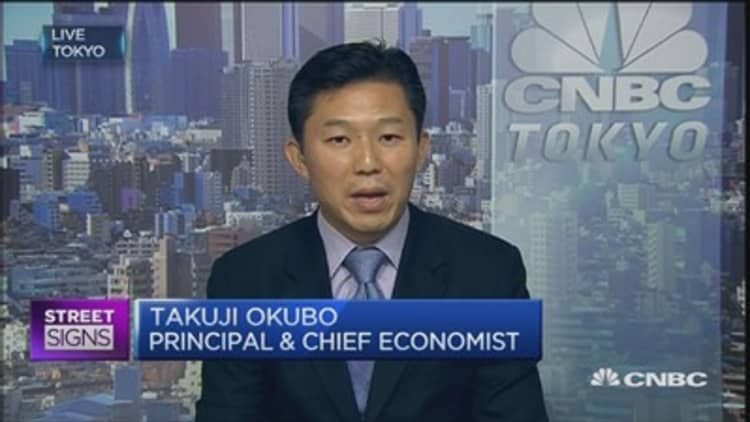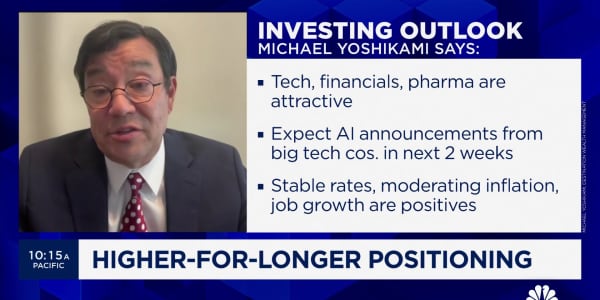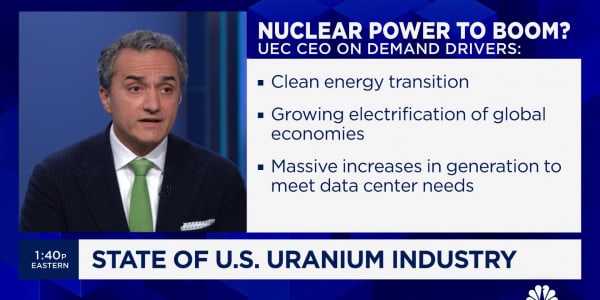Lots of money managers sitting in New York and London have opinions about Japanese efforts to spur economic growth, but what about hedge fund managers and bankers in Tokyo?
The answer is cautiously optimistic.
Some 72 percent of Japanese investors considered so-called Abenomics a success in 2013 and 2014, according to a new survey by hedge fund industry association AIMA Japan and data and research provider Eurekahedge.
"Abenomics" refers to the aggressive economic stimulus policy instituted by Japanese Prime Minister Shinzo Abe. It entails a money-printing operation similar to the U.S. Federal Reserve's quantitative easing, aggressive government spending and economic reforms.
At the same time, almost 90 percent of respondents believe that the Bank of Japan will fail to reach its inflation target of 2 percent by year-end. Another 60 percent expect the BOJ will be forced to do another round of QE.
Investors also were asked about key factors driving the Japanese economy for 2015 and beyond. Nearly 70 percent cited government structural reforms, including adding more immigrants and women to the workforce.
Read More Jilted hedge funds even more in love with Japan
The survey was comprised of 88 investors, including 52 percent from asset management companies, 21 percent from hedge funds and fund of hedge funds, 15 percent from banks, and the remainder from insurance companies and pension funds.

The view from abroad appears to be more bullish.
Many hedge funds that invest based on macroeconomic trends made money recently by betting that Japanese stocks would rise, according to a June report from investment firm GAM. The Nikkei 225 has gained nearly 15 percent this year.
Hedge funds are also, on average, betting on the yen to decline in value, a so-called short, according to a June report from Bank of America Merrill Lynch. The yen is down about 3.67 percent versus the dollar so far this year.
Read MoreYen soars after BoJ's Kuroda says currency already "very weak"
Being long Japanese stocks and short the yen both express confidence that the economy will grow. It's been a common bet for hedge funds in recent years and is sometimes called the "Japan reflation trade."
The Eurekahedge Japan Hedge Fund Index is up 5.19 percent net of fees this year through May. That compares to a 4.37 percent gain across all hedge funds strategies and regions.






